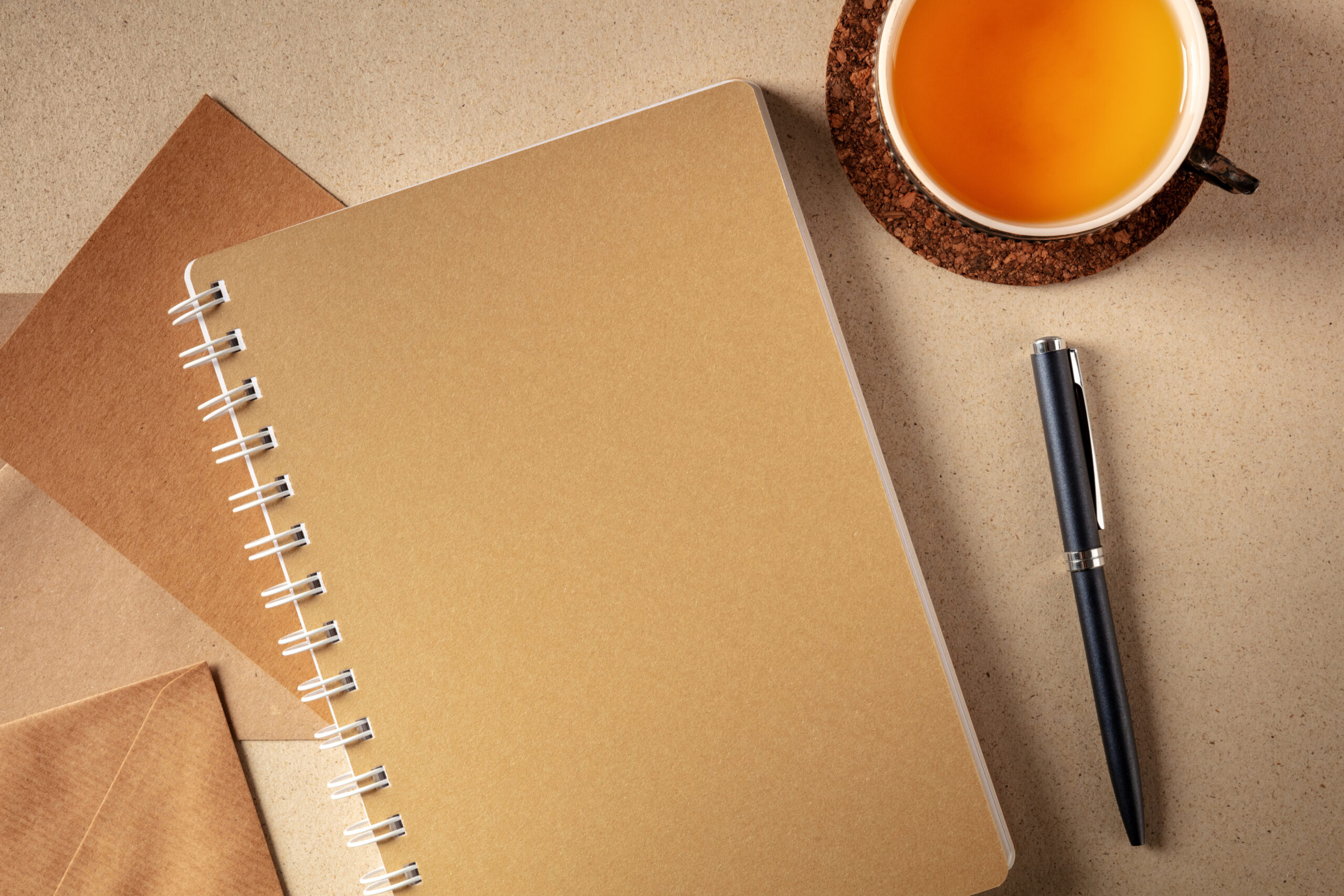
Stress-Relieving Techniques for Nurses — Part 4
NursePower Empowers Nurses! is focused on helping you take care of yourself. We’re nurses too, so we know how bad we all are at taking care of ourselves — great at taking care of other people, but not so much with ourselves.
But our job is stressful, now more than ever.
Two weeks ago, in our blog, “Tempted to Join the Great Resignation?” we discussed how the pressure we’re under causes us to lose sleep, feel anxious, grow depressed, become overwhelmed, just to name a few of the harmful effects from over 20 months battling Covid-19.
This is why we created the NursePower Empowers Nurses! initiative.
So far in our Stress-Relieving Techniques for Nurses series, we’ve shared how-to information on…
- How to meditate (for beginners)
- How to do mindful breathing
- How to select the perfect tea for your need
- How to select the best meditation app
And today, we’re going to discuss the many benefits of Journaling.
The Emotional and Mental Benefits of Journaling

Multiple studies have revealed that daily or weekly journaling can help you manage your emotional and mental health.
The act of transferring your thoughts, feelings, and experiences onto paper is both a process of cleansing and reflection.
First, your mind is cluttered and frenzied with so many thoughts that it makes it difficult to focus on any one given thing. This increases our sense of anxiety and frustration, creating a downward spiral of focus loss, anxiety, depression, and an inability to stop thinking. While mindful breathing and meditation can help slow your mind and focus your attention on the singular act of breathing, they are difficult to do with a mind cluttered with too many thoughts.
When you journal, you physically take your thoughts and transcribe them onto paper, allowing yourself to let go of those thoughts. Since they are now written down, you can put them aside and process your other thoughts, recording those on paper as well.
So journaling is an act of releasing and cleansing. By slowing down your mind and focusing it long enough to write your thoughts down on paper, you are releasing those thoughts and cleansing your brain. However, those thoughts will quickly return unless you reflect on them.
Second, you are better able to process your thoughts, feelings, and experiences when you can read them to yourself — particularly out loud. This is an act of istancing yourself just enough so you can hear what you are going through and apply at least a small degree of objectivity to them. Once you get your thoughts down on paper and begin reflecting on them, you’ll see gaps in your thinking, ideas you hadn’t considered, perspectives you were ignoring, and possibly answers that were obscured by the confusion in your brain.
One study on the effects of journaling found that taking 15-20 minutes a day just once a week was enough to lower blood pressure and improve liver function. The study also found these effects boosted the immune system — not surprising considering how closely connected all of our bodily systems are.
As nurses, we know the many positive effects of lowering our stress hormones. Our problem is making the time to actually DO the things that help us.
How to Begin Journaling…

First, commit to do this once a week at the same time. You’re about to encounter multiple opportunities for excuses not to do this, so first I want you to commit.
Go on, do it. Say the words: I commit to journaling once a week from now until…pick a holiday or your birthday — something a couple of months away.
Now you want to pick a day to journal that makes sense within your week. You may want to journal at the end of your week so you can fully process everything that happened. Or you may want to journal at the beginning of your week to prepare yourself for the week ahead. Or you may want to journal mid-week so you can assess how you’re doing and make any necessary course corrections in your emotions and thinking before things get too bad.
Also, you may find yourself journaling more than once a week. Once you start realizing how much better you feel after doing it, you’ll want to start doing it more often.
Second, you need a journal to write in. Here is your first excuse — well, I don’t have anything handy so I need to go to the store and I don’t have time to go to the store…blah, blah, blah.
If you don’t have a journal handy, then go buy one. You only need a spiral pad. If you want a fancy leather-bound journal, then go ahead and treat yo’self. Otherwise, pick up something today or tomorrow. Or you can go digital and download one of the many journaling apps available for your phone or tablet. Beware, here comes the second excuse — there are so many to choose from and I just don’t know which one would be best for me…blah, blah, blah.
Try Penzu. It is one of the earliest journal apps and it is free. It allows free-form journaling just like you would do in a notebook. Or you can try Day One, which is also a free-form journal style; this one will cost you $35/year. Don’t worry, you can afford it.
Third, when you journal — when you actually start writing — you have to release your thoughts onto the page. Don’t edit. You’re not writing a school essay so don’t worry about form, spelling, grammar, or punctuation.
Also, don’t think about what you ought to write. Often, the blank page is daunting. To conquer the blank page, just start writing whatever is in your head, even if it is just your grocery list or your kids names or your favorite TV show as a kid. Once you start writing, your brain will find a groove and you’ll start releasing all the jumbled emotions, thoughts, and experiences cluttering your mind onto the page.
Fourth, read your journal. Feel free to put it down for a day or two, but come back to it so you can see what is going on inside your head.
From time to time, as the weeks go by, read all your entries and reflect on the experiences you keep writing about, the emotions you keep struggling with. Do you see yourself processing things better? Do you see patterns in your life that you want to change or maybe ones you want to lean into more?
Easier than Exercise, More Familiar than Meditation…
There are so many things we could all be doing to reduce our stress and anxiety, to make each other feel better, to take better care of ourselves mentally, emotionally, and physically. NursePower Empowers Nurses! has been providing you with lots of options since the summer.
Journaling is maybe the most powerful and the easiest of all the strategies we’ve given you. As humans, we’re built for communication. We’re built for language. We’re built for complex thoughts but we need the power of language and writing to get those thoughts out of our heads so we can move on.
We write down our emotions so we can examine them and then move on.
We write down our experiences so we can consider them and then move on.
We write down our ideas so we reflect on them and then maybe come back to them later on.
My point is that if you want better focus, if you want a quieter mind, if you want a calmer heart, then you should pick up that pen, pencil, or stylus, and start journaling today.
I know I am.
Leave a reply